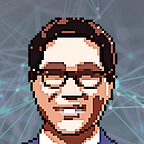You Don’t Have to be Good at What You Do
On my recent trip to Hong Kong, I had an awful experience with the staff that handles luggage (sweet home Chicago). I thought to myself: Your job seems so easy, why can’t you just be good at what you do? Then I caught myself. That isn’t necessary at all. There should be no clear relation between how good you are at a job and the job that you actually pick. Picking a job — or making any choice for that matter — could just as easily be driven by what makes you less miserable as what makes you happy.
Picking a job isn’t about fulfilling an existential dream. It is about making us better off relative to the alternatives. Yet, we see a plethora of guides on how to follow your dreams and find yourself in this chaotic world. Take a hike along Mount Kinebalu will help clear our minds. Partake in a tribal group-drug taking ritual to help find your destiny. All this quackery misses the core of how rational people make choices based on comparing the marginal cost and marginal benefit.
Plumber or Doctor?
When deciding to be a doctor or a plumber, people usually think of two things: will I make a great plumber or will I be a great surgeon? While it’s nice to consider what we are great that, this is flawed thinking. What we should really think about is whether we are better at one thing versus the other.
Simply put, if you would make a great doctor but lousy plumber, you should probably be a doctor. If you would make a great plumber but lousy doctor, you should probably be a plumber. But most of us are in between. Perhaps you are a decent doctor but an excellent plumber. What then? The cost of choosing to become a doctor is how happy you would be as a plumber and vice versa. If it is obvious which makes you happier, the decision is clear-cut.
On the other hand, a person who is equally good at surgery or plumbing, or equally bad at being both, have the hardest decision to make. This is because being equally good or bad effectively maximizes the opportunity cost given your ability.
When I started my PhD program I asked a professor how he chose an area to specialize in. I told him too many things interested me. His advice was golden, “Ben, making choices isn’t just about picking the best field to specialize in, it is about giving up all the other fields as well”. In my mind I thought, I’m equally good at corporate governance as I am at asset pricing. What I didn’t realize back then was that I could simply be equally bad at both! Though not particularly uplifting, it could very well be true.
This framework applies even if jobs have different pay and perks. What would require more thinking, and where a walk in the park with a notepad might indeed be helpful, is to account for all the costs and benefits of that choice.
But I don’t Know How Good I am Yet
Obviously in reality this choice isn’t so obvious. It would be very stringent to force us to know what career we want in our life at age 18. In this joyful ride that is life, we acquire new skills and learn about our potential. So how does that fit into our framework?
If payoffs to different alternatives come at different times as well as amounts, they must be converted to a comparable measure. You would also need to think about how much you think you can learn (meta!) and how that would affect you in the future. While from trying to figure out your skills and learn about the historical payoffs for different choices, invest in ventures that can payoff no matter what choice you end up making. For an 18 year old college student, it might be taking a statistics class or basic programming class, since for most jobs they want to do, they will probably have to interact with some kind of data or code.
What if there are too many choices?
It’s true that if you know exactly what choice makes you the happiest, you’re the best off. But even picking your favorite cereal among 40 brands can be difficult. It would be a godly feat to study the nutritional value on all those cereal boxes (though we are increasingly able to do that), let alone taste each of those cereals to find the best one for you. In a world where actually searching for the optimal is a costly process, it turns out the best response would just to grab one of the cereal boxes that makes you go “eh, I guess this one is alright”. After all, the experience may help you get a better job later on as well.
We make choices on the margin, not just based on the level of happiness. This process also means that we can’t expect people to always be efficient at their job, since their picking that job may not make them happy but just less miserable. Coming across someone bad at their job may either indicate that they really are incompetent, or maybe they are still in the process of learning what they really want to do for the rest of their life. But regardless of the reason, it should be the best that they can do now. Though this framework reveals the world as a cold place, after I caught myself criticizing the airport attendant I suddenly became much more respectful and empathetic.
